Product Description
In voices as variegated as the losses they describe, these poets write from the heart of grief for an audience of one–and through these published pages, to many. What emerges from their sometimes homespun, sometimes elegant verse is a rich quilt that captures the nuances of mourning in all of its lived complexity, offering a generous resource for the bereaved to explore—and using the toolbox of techniques provided by Hoffman and Moats—to express their personal trauma and transformation in poetry of their own. Bridging literary and therapeutic intents, the resulting anthology exemplifies what might appropriately be termed the “healing arts.”
Robert A. Neimeyer, PhD
Editor of Grief and the Expressive Arts: Practices for Creating Meaning
There are many current cultural myths regarding the process of grieving as well as the nature of loss. These include notions that change and loss can be avoided, grieving is something one should “get over,” and that suffering has no purpose. Capturing Shadows: Poetic Encounters Along the Path of Grief and Loss shatter these and other misguided beliefs regarding dying and grieving in a creative and personally powerful way. By going beyond the usual intellectual attempts to alter our more accepted ways of seeing the world, poetic expression has the power to transform not just our usual way of knowing, but our very way of being-in-the-world. I encourage those who are open to being deeply affected and transformed regarding their present awareness of grief and loss to engage these encounters with an open and receptive heart. You will experience changing in a wiser and deeper way.
Ron Valle, PhD, Psychologist
Author of Opening to Dying and Grieving: A Sacred Journey
Capturing Shadows is an exquisite testimony to the healing power of poetry expressed in the raw experience of sharp grief and penetrating loss. Readers must prepare to have their defenses disarmed as tears take them again and again through the pain of these poets to transformational love and awe. This book will be cherished by all who have grieved and by all who accompany others as they heal from deep sorrow.
Sue Cooper, PhD, Psychologist
In his book Love and Will, Rollo May observed that artists do not provide us solutions but give us contributions that help us to remain resolute in our searching process. C.S. Lewis, the eminent theologian, shared that we read to know that we’re not alone. This marvelous book offers us poetic expressions of grief and loss that can help dissolve our sense of alienation in the searching process that is part of all losses and transitions. I urge you to dive into the poetry within and discover for yourself the wisdom of the proverb that shared grief is half the grief while shared joy is twice the joy.
Mark Yang, PsyD
Director of the International Institute of Existential-Humanistic Psychology; Adjunct Faculty & Director of Existential-Humanistic Programs in Asia, Saybrook University
This beautifully crafted book seeks to do nothing less than revolutionize our attitude toward an ancient means of dealing positively with the mystery of loss: poetry. It not only encourages us to put our own loss-related painful feelings and plaintive cries into writing but also to bond with others in their attempts to do so. Moving examples of everyday people’s poems are followed by restorative activities we can perform, alone or with others, once our poems are brought to life. This calm, professional examination of the use of poetry as a means of healing enables teachers, mental health professionals, and spiritual guides—as well as those who seek their help—to transform death into life and pain into peace. This provocative book allows all who read it to learn in the non-threatening and freeing atmosphere that truly good teachers create.
Judith A. Schaeffer, PhD, OSF
Capturing Shadows is a collection of poems that I highly recommend to everyone, especially those of us who have survived tragedies or are looking to find the light out of the darkness for a better life. The words you will read of sadness, respect, hope, and love are truly moving and make you appreciate the time you have on this earth and with those whom you love. As a survivor of the 9/11 attacks, I identify with many of the poems and it is refreshing and comforting to read feelings that I have felt and had to deal with in the words of others. They are words that give me hope, love, and reflection of life, and that in itself makes Capturing Shadows priceless.
William Jimeno
9/11 survivor
Published: December 8, 2019
Pages: 288
ISBN (Paperback): 978-1-939686-09-1
ISBN (ebook): 978-1-939686-55-8
Acknowledgements: A Testament to Meaning in Relationships
Setting the Context
Preface – Myrtle Heery
Foreword – Alan D. Wolfelt
Introduction
Opening – Robert A. Neimeyer
The Falling of Hair – Carol Barrett
I Had to Say Goodbye Tonight – Louis Hoffman
Two Balloons – Michael Moats
September 11 – David N. Elkins
Stupid Raven – Ted Mallory
Losing My Mind – Nesreen Alsoraimi
Moonless Night – Juanita Ratner
Passage of Sorrow – Nance Reynolds
Atonal Autumn – Candice Hershman
Watching Ants – Tammy Nuzzo-Morgan
Ode to Joseph – Lisa Vallejos
No Milk – Louis Hoffman
After My Death – Carol Barrett
Alchemy – Wade Agnew
Changed Lenses – Michael Moats
The Art of Longing – Robert A. Neimeyer
The Honeymoon is Over – David Bentata
The Day the Wild Horses – Susan Gabrielle
The Love of a Childless Mother – Veronica Lac
A Mother’s Hug – Michael Moats
I Want to Be Ready – Louis Hoffman
Written on a Plane on the Inside Jacket of a Paperback on the way Home – Ted Mallory
A Happy Old Man – Paul T. P. Wong
Instructions for a Long Life – Carol Barrett
Blessed or Cursed – Nesreen Alsoraimi
13 – LeesaMaree Bleicher
Blanched – Aarica Geitner
Death Poem #13 – Richard Bargdill
Forever/Now – Joel Federman
Take My Hand – Deerheart
Breakfast at the Retreat – Robert A. Neimeyer
Desert Dreams – Nesreen Alsoraimi
Do You Have a Minute – David Bentata
Viscous Cycle – Joy L. S. Hoffman
Understanding Life in Death – Emily Lasinsky
Heal (Image) – Emily Lasinsky
Brown Chair – Louis Hoffman
Little Ones – Alexandra O’Toole
My Grandpa’s Farm – Ted Mallory
Let Me Help You, Dad – Michael Moats
One Last Tear – Nathaniel Granger, Jr.
Kindergarten Doorway/Here and Not Here – Larry Graber
Go My Children – Richard Bargdill
Crow Party – Susan Gabrielle
Father – Staci Fraley
Flame Eternal – Kat V. Rosemond
My First Suicide – Carol Barrett
People in the Streets – Louis Hoffman
Pink Rain – Paul T. P. Wong
Lebkuchengewuerz – Katherine Kreil-Sarkar
Séance – Nesreen Alsoraimi
Seeing You Die and Letting You Go – Monica Mansilla
Melting Snow – Michael Moats
Hospital Haiku – Tracy Lee Sisk
An Ecology of Grief (Haiku Collection) – Virginia (Gina) Subia Belton
Nearness of You – Louis Hoffman
Can You Hear Me Tap – Tammy Nuzzo-Morgan
Ode to an Old Woman – Marna Broekhoff
One Bare Place Setting – Louis Hoffman
Trying to Manage – Aliya Granger
The Heavens Cried – David Bentata
The Ghost in my Abdomen – Candice Hershman
Spirit – Robert A. Neimeyer
Over the Hill – Ted Mallory
Many Years Have Passed – Laurie Phillips
Armin’s Shoes – Grace Harlow Klein
Death Poem #22 – Richard Bargdill
Tree People (Image) – Richard Bargdill
Survivors – Robert A. Neimeyer
Parts of Speech – Carol Barrett
Death’s Courting – Louis Hoffman
The Desert of My Youth – Larry Graber
Swimming for Treasures – Nance Reynolds
The Boy They Love – Lisa Vallejos
Reptile – Nesreen Alsoraimi
Black Coffee – Catherine Granger
Hell’s Gate – Kat V. Rosemond
The Weeping Tree – Erica Palmer
The Crestone Experience – Juanita Ratner
At Grandma’s Feet – Lisa Vallejos
Vicissitudes – Shelley Lynn Pizzuto
Tractor Ride – David Bilyeu
Sharing Grief – Tracy Lee Sisk, Kat V. Rosemond, & Larry Graber
All I Have is Silence – Paul T. P. Wong
I’m So Sorry – Ted Mallory
Approaching Death – Louis Hoffman
In Trees Again – Victoria J. Hamdi
Choosing to Turn – Michael Moats
Road Kill – Nesreen Alsoraimi
Alter – LeesaMaree Bleicher
Unfinished Narrative – Joy L. S. Hoffman
The Cross Culture Citizen – Eylin Margarita Blake
Only Here & Only Now – Samuel Ballou
The Dam Cannot Hold – Amelia Isabel Torres
Letting Go – Ericka Pate
Thirst – Emily Lasinsky
Cloak of Happiness – Chelsea McCarty
Pushed into the Wilderness – Monica Mansilla
Room – Robert A. Neimeyer
Growing – Molly Kruger
Hollow – Ashley Finley
Surviving the Loss – Carrie V. Pate
Snowfall – Carol Barrett
I mumbled – Anne YJ Hsu
Unnamed – Tammy Nuzzo-Morgan
Alzheimer’s Disease – Erica Loberg
The Lost Home – Monica Mansilla
Stanstead – Victoria J. Hamdi
Fourteen Years – Michael Moats
The Undertaking – Beverly Magovern
Again – Lisa Vallejos
Dandelion (Image) – Richard Bargdill
The Threshold – John Chavis
Sometimes – Judith H. Montgomery
Bitter Watch – Kat V. Rosemond
On Pain and Healing – Melinda Rothouse
Falling Apart – Candice Hershman
Alma – Victoria J. Hamdi
Processing – Emily Lasinsky
Blue – Amelia Isabel Torres
Horse of Snow White – Jesse S. Moats
I Stand – Shawn Rubin
Send-off – Robert A. Neimeyer
The Return of Spring – Paul T. P. Wong
Poetry Exercises
About the Editors
Louis Hoffman, PhD, has been writing and presenting poetry for many years. His first edited poetry volume, Stay Awhile: Poetic Narratives on Multiculturalism and Poetry, was published earlier in 2015 with Nathaniel Granger, Jr. as the co-editor. He is a father, husband, and loving dog owner.
Dr. Hoffman is a licensed psychologist and a faculty member at Saybrook University, where he teaches the courses, “Poetry, Healing, and Growth” and “The Use of Poetry with Death, Loss, and Life Transitions.” He is also the director of the Existential, Humanistic, and Transpersonal Psychology Specialization at Saybrook University and teaches courses on humanistic and existential therapy, international psychology, multicultural issues, and spirituality, as well as the courses on poetry.
Dr. Hoffman is active writing scholarship as well as poetry, and has a total of 6 books to his credit along with numerous journal articles and book chapters. He has served as the president of the Society of Humanistic Psychology. A co-founder of the Zhi Mian International Institute of Existential-Humanistic Psychology, he has been active in dialogues and trainings on existential psychology in China and Southeast Asia. You can find more out about his writing and scholarship at www.louis-hoffman.com.
First and foremost, Dr. Michael Moats describes himself as a father, a husband, and a friend. His passion as a clinical psychologist lies in working with clients who are learning to redefine their lives and create new meaning, especially those dealing with grief and loss in its many forms (i.e., death, divorce, job loss, recent move, natural disaster, war).
Michael was raised in a rural area, in which family and community were an important part of his cultural heritage. Struggle, challenge, curiosity, and death were all experiences that would set him on a path that had not been understood, until later in his life. Michael would say that his knowledge of grief and loss has been heavily influenced by an experiential understanding, with a twist of theory for academic legitimacy. His greatest mentors have been hospice patients and their families, his family and friends that have died, and those friends, family, and colleagues that have navigated loss with a Zhi Mian attitude. He would not negate the importance of theory and intellectual knowledge concerning grief and loss, but he would argue that theory cannot touch the significance of having the courage to experientially engage the feelings of helplessness of another and accompany them without trying to fix it.
Dr. Moats recognizes that every instance of loss is new and is not competitive. The subjective experiences are heavily influenced by culture, experience, resiliency, spirituality, support, and meaning, which was a motivating factor for his research interests, including a qualitative, cross-cultural study (China and the US) that investigated meaning making and the lessons learned through loss. Additionally, he is a published poet and author of various book chapters and articles, as well as a co-founder of the Zhi Mian International Institute of Existential-Humanistic Psychology, promoting continued international dialogue and training to contribute to a more rounded perspective within the global, psychological community.
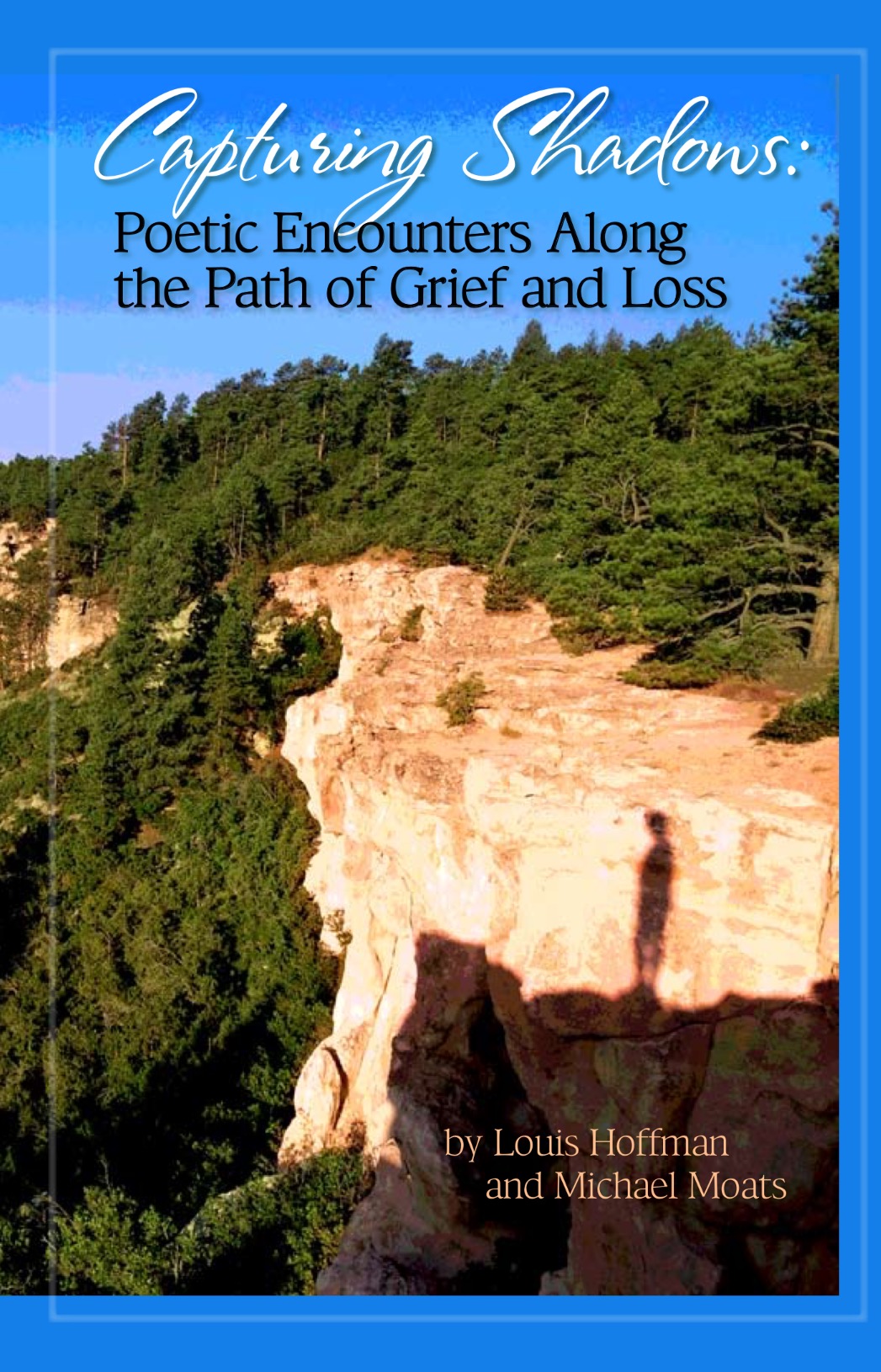
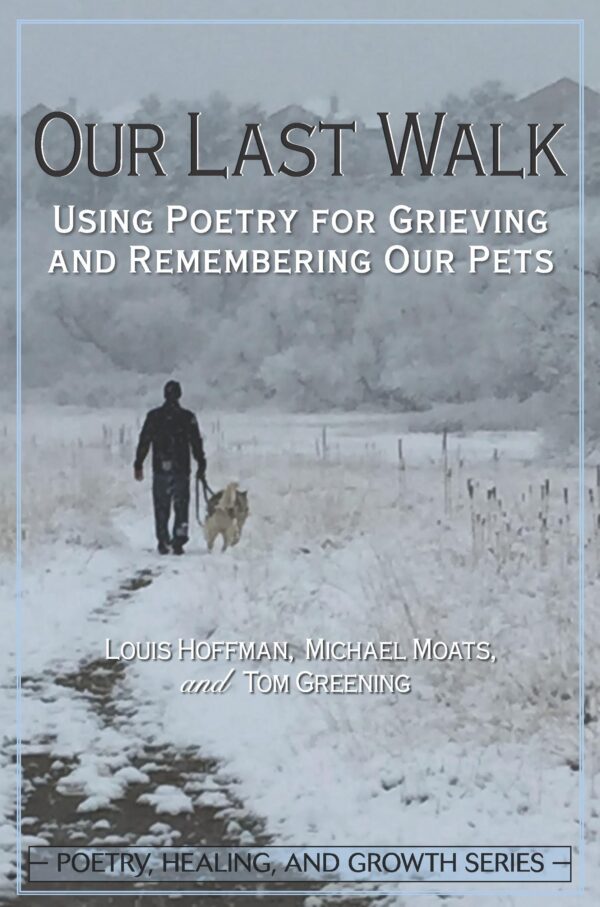
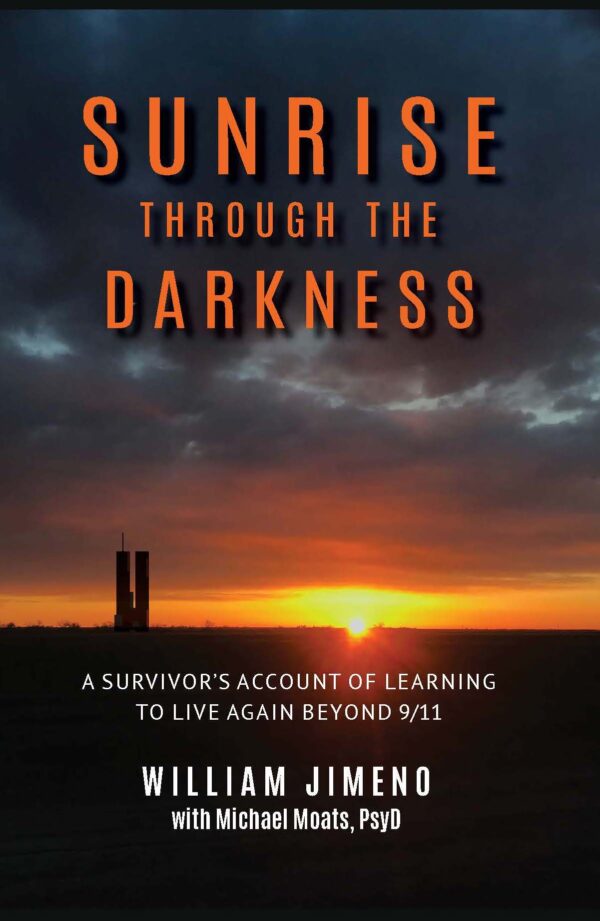
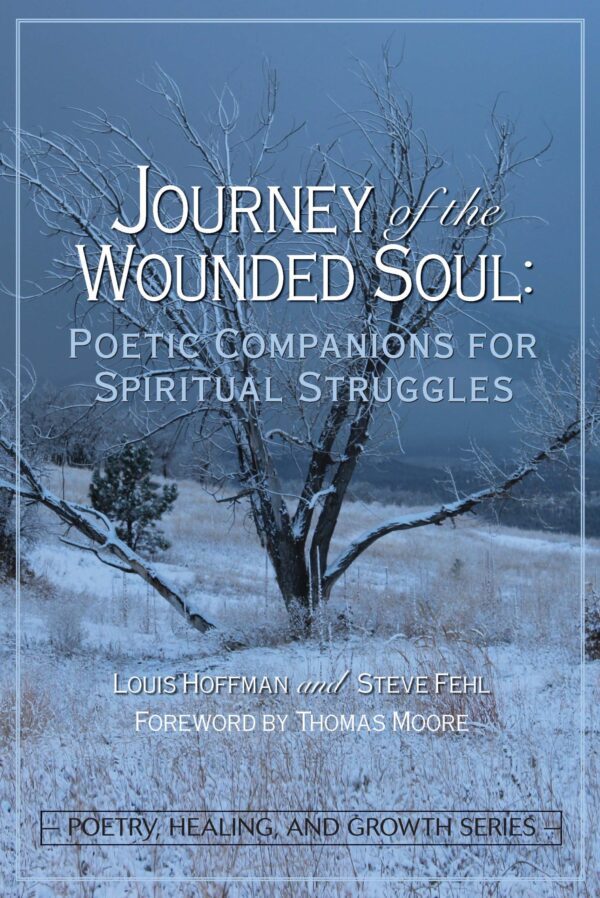

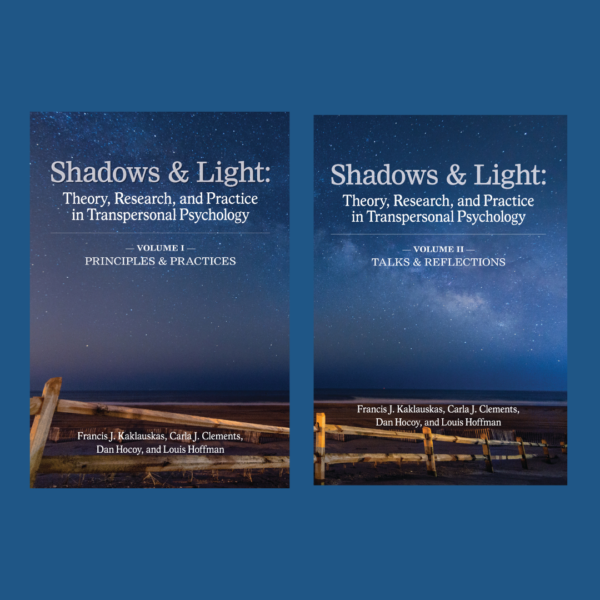
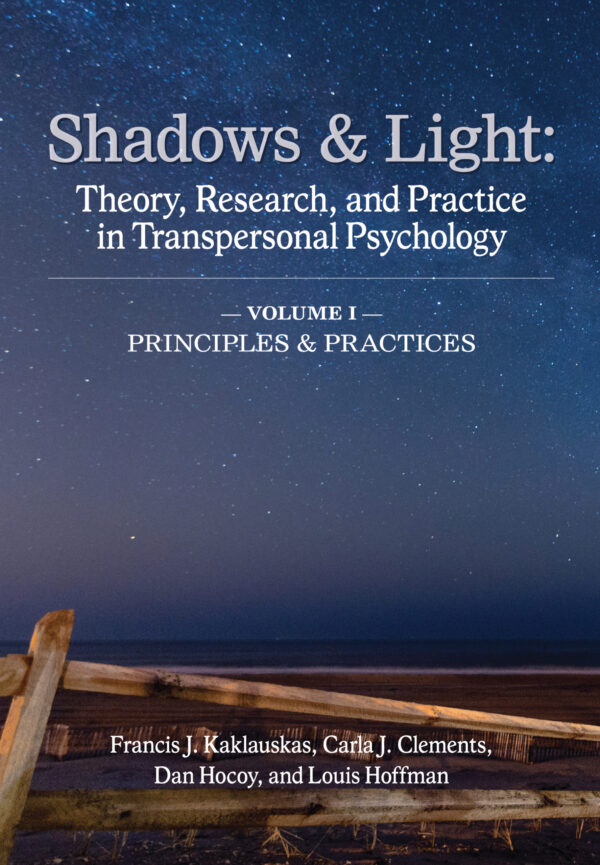
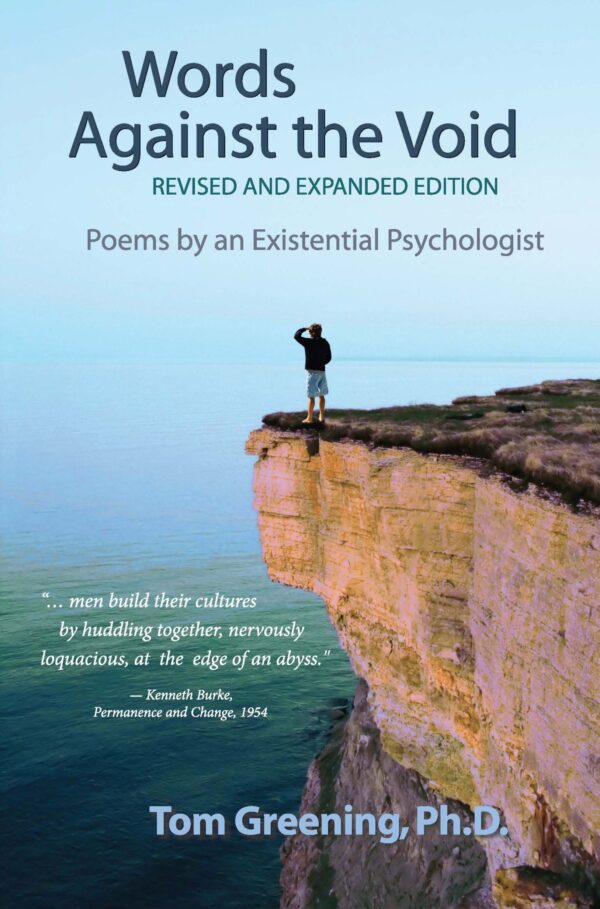
Reviews
There are no reviews yet.